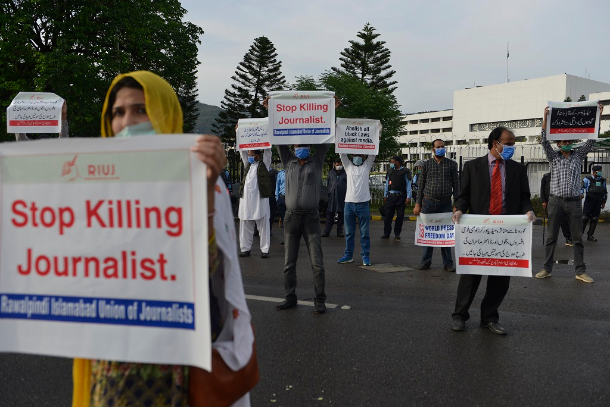A committee of journalists in Islamabad said on Monday that the media is facing growing censorship. Attacks and harassment are threatening the freedom of the press in the country. The Pakistani government, however, says that journalism is under no pressure in the country. The premier of the country has said on many occasions that Pakistan is among the “freest” countries for the press despite the country’s pitiful ranking in global press index.
On Monday, President of Pakistan Federal Union of Journalists Shahzada Zulfiqar and Secretary-General Nasir Zaidi said that freedom of the press is their hallmark and that they will “not surrender this cause at any cost.” They said that journalists in the country are being underpaid and thousands are now jobless.
Pakistan has been a deadly place for journalists for a long time. There were 148 documented cases of attacks and violations against journalists in Pakistan from May 2020 to April 2021, according to the Dawn, the country’s oldest and largest English newspaper. These included six murders, seven attempted assassinations, five kidnappings, 25 arrests or detentions of journalists, 15 assaults and legal registered cases against journalists. In an editorial, the paper said that the space for journalism is shrinking in Pakistan, and “a media in chains cannot hold the powerful to account and serve public interest as it is meant to do.”
Pakistan ranked ninth on the Committee to Protect Journalists’ (CPJ) Global Impunity Index which assesses countries where journalists are murdered and their killers go free. Even though the Pakistani government says it supports freedom of speech, rights activists say that the Pakistani military – the de facto rulers of the country – attacks and harasses journalists.
According to sources, Pakistan’s media regulatory body – the PEMRA – has issued more than 12,000 notices for media people, newspapers and journalists. The establishment is using various tactics to silence dissent and investigative journalism in the country, including telling PEMRA to direct news media on what can or cannot be reported. The news channels that do not comply with these regulations are taken off air or fined handsomely.

